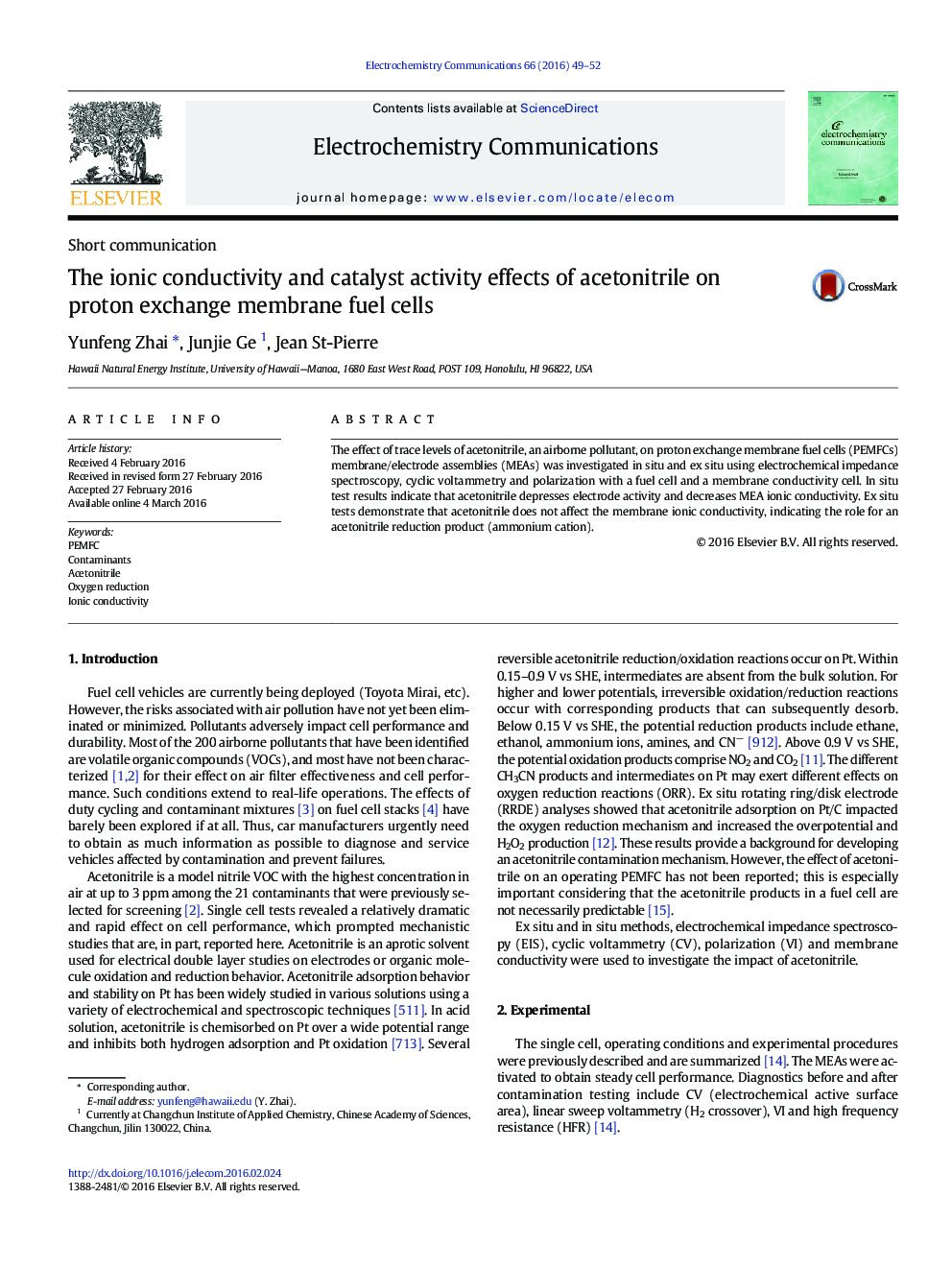| Article ID | Journal | Published Year | Pages | File Type |
|---|---|---|---|---|
| 178682 | Electrochemistry Communications | 2016 | 4 Pages |
•CH3CN depresses both electrode activity and MEA ionic conductivity in a PEMFC.•CH3CN adsorption on Pt inhibits hydrogen oxidation and oxygen reduction.•CH3CN adsorbates are not removed by potential scanning within 0.08–1.2 V vs HRE.•CH3CN does not affect Nafion® ionic conductivity in an ex situ cell.•The CH3CN decomposition product NH4+ reduces the ionic conductivity of the MEA.
The effect of trace levels of acetonitrile, an airborne pollutant, on proton exchange membrane fuel cells (PEMFCs) membrane/electrode assemblies (MEAs) was investigated in situ and ex situ using electrochemical impedance spectroscopy, cyclic voltammetry and polarization with a fuel cell and a membrane conductivity cell. In situ test results indicate that acetonitrile depresses electrode activity and decreases MEA ionic conductivity. Ex situ tests demonstrate that acetonitrile does not affect the membrane ionic conductivity, indicating the role for an acetonitrile reduction product (ammonium cation).
